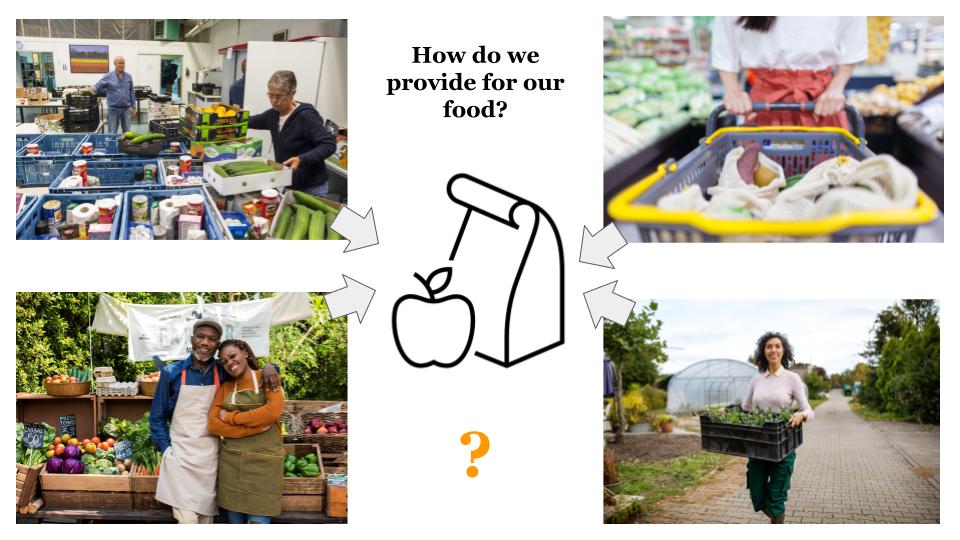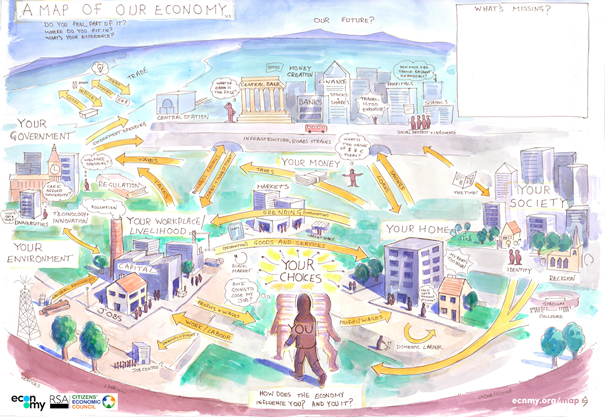Suggestions for incremental change to development economics courses, drawn from the ten building blocks of Economy Studies.
General approach
Change often happens incrementally and slowly. In the economics textbook market, for example, there is an unwritten rule that new textbooks cannot differ more than roughly 15% from the standard textbook in order to be ‘acceptable’ (Colander, 2003).
While our book clearly breaks this rule and proposes more far-reaching and fundamental changes in most chapters, in this chapter we focus instead on how existing courses could be adjusted incrementally. By doing so, we hope to assist educators in improving and adapting the courses they teach without needing to rip them up and start again, as well as helping students make suggestions for how this could be done.
First, we set out the typical contents of current courses. Second, we provide our suggested additions and changes. It is important to note that we pose all these suggestions as potential sources of inspiration, not a checklist of all the things that necessarily should be included. After all, there is a practical limit to what can be taught within a single course.
Courses:
Typical contents of current courses
A key ingredient of development economics courses are mathematical models of economic growth, such as the Solow, Ramsey and AK models. But while significant parts of development economics courses are devoted to teaching neoclassical theoretical models, it is often less dominant than in other courses. Many courses also devote attention to discussing history, debates about policy questions, and real world knowledge related to today’s main world problems. With this a broad range of topics are discussed, from poverty and inequality to industrialisation, urbanisation, education, institutions, finance, trade and globalisation.
Frequently used textbooks:
- Development Economics by Gérard Roland
- Development Economics by Debraj Ray
- Development Economics: Theory and Practice by Alain de Janvry and Elisabeth Sadoulet
- Essentials of Development Economics by J. Edward Taylor and Travis J. Lybbert
- Economic Development by Michael P. Todaro and Stephen C. Smith
- Economics of Development by Dwight H Perkins, Steven Radelet, David L Lindauer, and Steven A Block
- Handbook of Development Economics by Dani Rodrik and M.R. Rosenzweig
- Introduction to Economic Growth by Charles I. Jones and Dietrich Vollrath
- Economic Growth by David Weil
- The Economics of Growth by Philippe Aghion and Peter W. Howitt
Suggested additions and changes
Relevant teaching packs
Recommended books
- Handbook of alternative theories of economic development by E. Reinert, J. Ghosh, and R. Kattel, from 2016. An impressive collection of essays covering developmental ideas, histories, and issues from all over the world.
- Economic Growth And Development by Hendrik Van den Berg, from 2012. A useful book bringing history, normative debates, and a wide range of theoretical approaches and topics.
- Socio-Economic Development by Adam Szirmai, from 2015. An impressive book dealing with a vast array of topics and ideas related to economic development in a systematic manner.
- Kicking Away the Ladder: Development Strategy in Historical Perspective by Ha-Joon Chang, from 2002. An influential and accessible book investigating how the developed countries became rich and how this differs from the stories we often tell about it.
- The Economics of Poverty: History, Measurement, and Policy by Martin Ravallion, from 2015. An informative history of both the idea and reality of poverty and policy attempts at reducing and eliminating it.
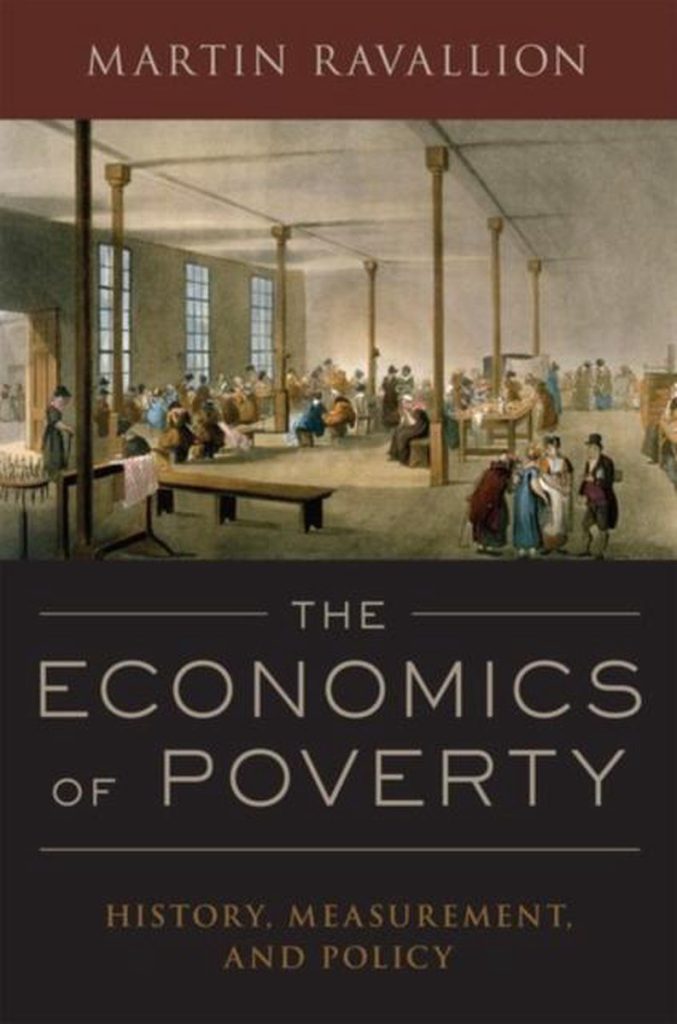
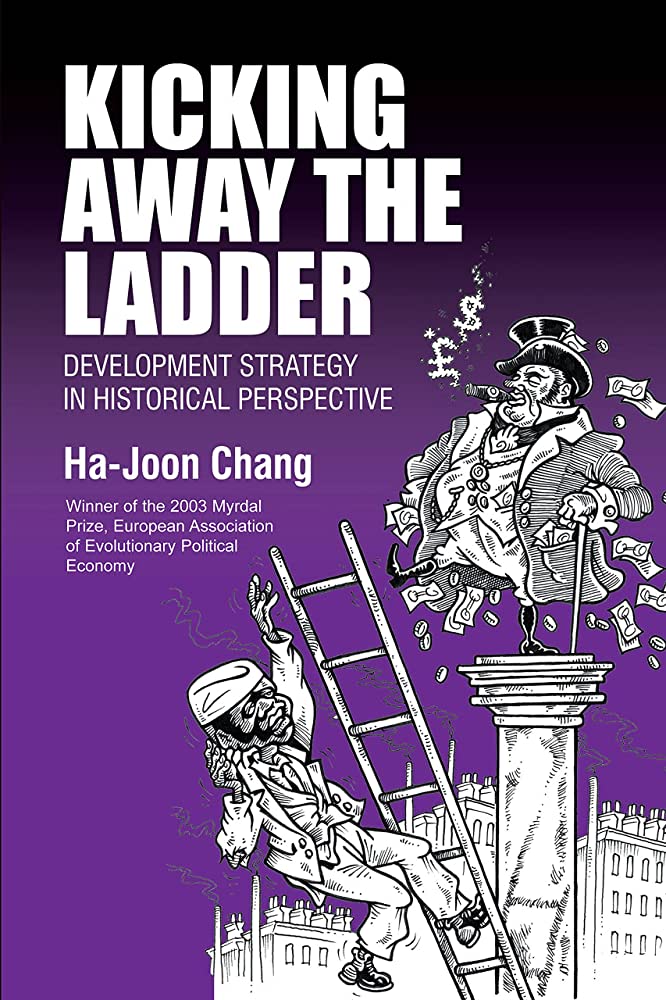
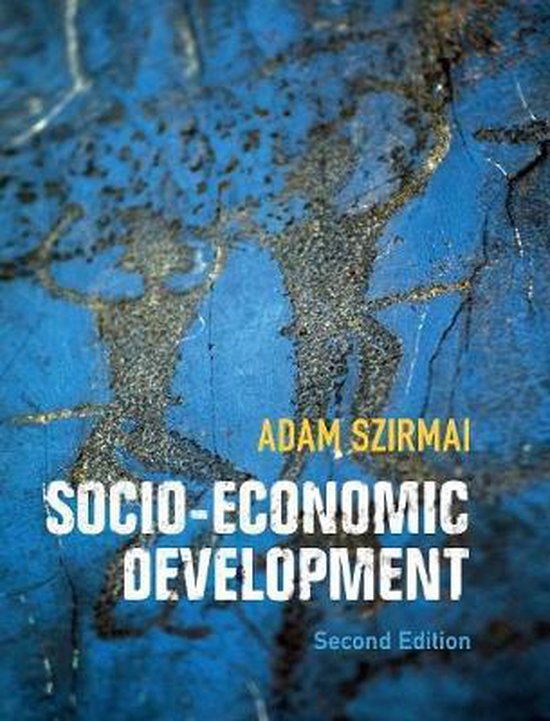
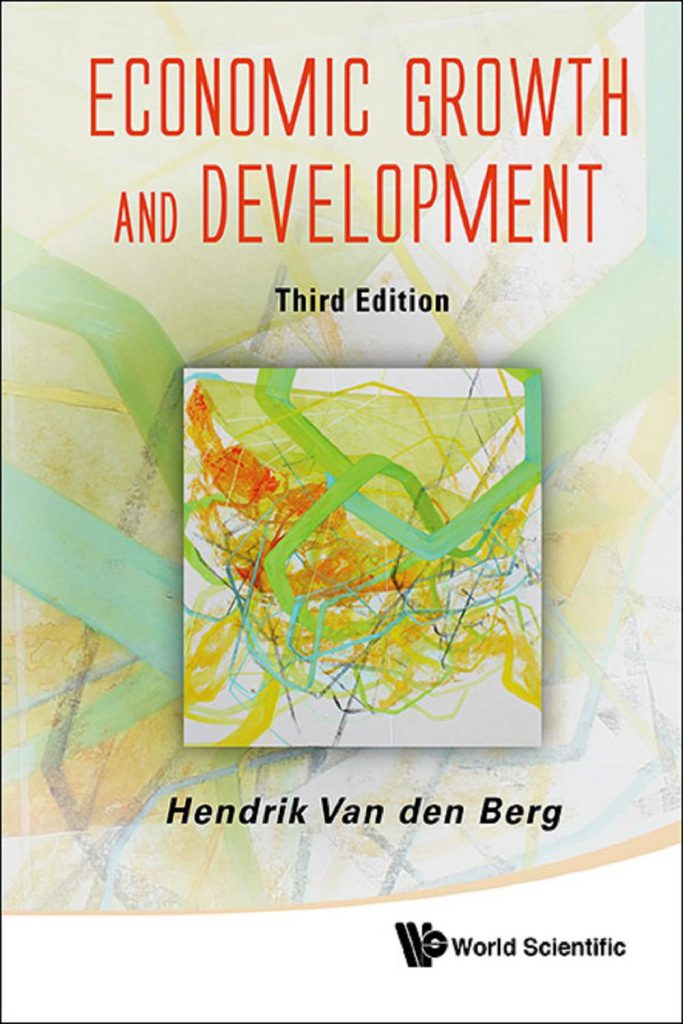
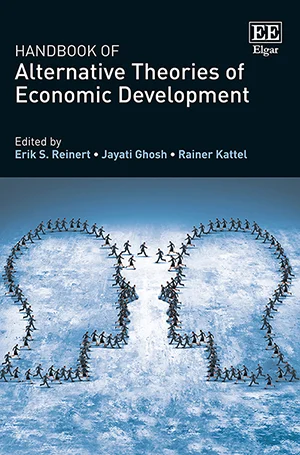
Practical skills and real-world knowledge
A good amount of development economics courses already devote teaching time to real world knowledge by including case studies, discussing how institutions such as the IMF and World Bank work, and examining core societal issues such as poverty and hunger. We applaud this and encourage teachers to extend the real world knowledge that they teach students by including more in-depth discussions of key societal problems and institutions, both global and local.
For more detail, see Building Block 2: Know Your Own Economy and Building Block 9: Problems & Proposals.
A range of analytical tools and approaches
While it is important to decolonise our thinking in every field, it is perhaps particularly important in the field of development economics. Important local, or national, thinkers on development should thus be treated as seriously as those appearing in the pages of standard textbooks. Within development economics, a key debate is between those who believe in a passive state and free trade, and those who argue for an active state and (infant industry) protection. These ideas find much of their origins in classical political economy and the historical school, but have also been further developed by economists using different approaches. Another important topic in development economics is institutions. Many economists have analysed which economic, political and social institutions best enable or preclude economic development. Finally, there are many other theories and ideas about economic development, coming from a wide range of approaches, such as ecological, behavioral, structuralist, and evolutionary economics. Students could benefit from becoming familiar with these ideas as well, even if only in a rough manner given the time constraints.
For more detail, see the section Economic Development in the background material Pragmatic Pluralism.
Teaching Materials
- Economics After The Crisis by Irene van Staveren, from 2015, chapters 12 & 15. This well-written textbook which in two chapters set out the neoclassical, post-Keynesian, social economic and institutional perspectives on economic growth, wellbeing and poverty.
- The Economy by The CORE Team, from 2017, chapters 1, 2, 16 & 21. This successful textbook contains chapters on historical development, technology, and growth.
- Introducing a New Economics by Jack Reardon, Maria A. Madi, and Molly S. Cato, from 2017, chapters 5 & 15. This ground-breaking textbook weaves together pluralist theory and real-world knowledge, and includes chapters on development and poverty.
- Principles of Economics in Context by Jonathan Harris, Julie A. Nelson and Neva Goodwin, most recent edition from 2020, chapter 32. This useful textbook, which pays particular attention to social and environmental challenges, contains a chapter on growth and development.
- Capitalism: Competition, Conflict, Crises by Anwar Shaikh, from 2016, chapters 12, 13, 14, & 16. This impressive and extensive book compares multiple perspectives on many traditional economic topics including business cycles.
- The Routledge Handbook of Heterodox Economics: Theorizing, Analyzing, and Transforming Capitalism by Tae-Hee Jo, Lynne Chester, and Carlo D’Ippoliti, from 2017, chapter 29. This broad and diverse book sets out a variety of theories on development.
- Alternative Ideas from 10 (Almost) Forgotten Economists by Irene van Staveren, from 2021, chapter 7. This book emphasizes often ignored and neglected ideas and contains a chapter on the ideas of Amartya Sen on capabilities.
- The Handbook of Economic Sociology by Neil J. Smelser and Richard Swedberg, from 2005, chapter 29. This extensive and yet accessible book for non-sociologists, provides an impressive and useful overview of the field of economic sociology, including a chapter on the role of technology in the economy.
- Economics: The User’s Guide by Ha-Joon Chang, from 2014, chapter 11. This brief and accessible pluralist book contains a useful introductory chapter on poverty.
- DPR Debate: Should industrial policy conform to comparative advantage or defy it? by Ha Joon Chang & Justin Lin, from 2009. A highly interesting written debate by two leading development economists enabling students to get a sharp and more nuanced understanding of a key debate surrounding policy.
- Development Macroeconomics: Alternative Strategies for Growth by Basil Oberholzer, from 2020. This book aims to help identify effective macroeconomic strategies for growth by taking into account the multiple constraints that countries face.
- Socio-Economic Development by Adam Szirmai, from 2015. An impressive book dealing with a vast array of topics and ideas related to economic development in a systematic manner.
- Handbook of alternative theories of economic development by E. Reinert, J. Ghosh, and R. Kattel, from 2016. An impressive collection of essays covering developmental ideas, histories, and issues from all over the world.
- Beyond Growth: The Economics of Sustainable Development by Herman Daly, from 1996. A useful book written from an ecological perspective focusing on how economic development can become sustainable and move away from destructive growth.
- Economic Growth And Development by Hendrik Van den Berg, from 2012. A useful book bringing history, normative debates, and a wide range of theoretical approaches and topics.
- Beyond Development: Alternative Visions from Latin America by M. Lang & D. Mokrani, from 2013. A collection of essays bringing together a diverse set of ideas and perspectives on development.
Institutions and different ways of organising the economy
Institutions are a crucial aspect of development economics. The current teaching about institutions, which often has a neoclassical (or new institutional) focus on property rights and market mechanisms, could be enriched by looking more specifically at the complex institutional set-up of the (national or local) economy and institutional variety around the world. Just like our theoretical thinking needs to be decolonised, the way we understand how economies are, and can be, organised needs to be decolonised. There are many forms of economic organisation that are currently too often ignored in economics education. We therefore advise teachers to devote time to these other organisational forms, and in particular those that are locally prevalent/relevant. This knowledge will help students better understand how economies are currently organised as well as how they could be organised in the future.
For more detail, see Foundations 5: Diversifying and decolonising economics, as well as Building Block 5: Economic Organizations & Mechanisms and Building Block 6: Political-Economic Systems.
Teaching Materials
- Comparative economics in a transforming world economy by J. Barkley Rosser Jr. and Marina V. Rosser, most recent edition from 2018. A highly useful and broad book describing many varieties of advanced market capitalism, varieties of transition among socialist economies, and alternative paths among developing economies, with chapters on many countries, such as the United States, Russia, Sweden, China, India, Iran, South Africa, Mexico, and Brazil.
- The Developmental State by Meredith Woo-Cumings, from 1999. An informative collection of essays on the concept of the developmental state, with chapters devoted to its various aspects, its economics and different cases, such as India, Japan, Mexico, Brazil and France.
- A Handbook of Economic Anthropology by James G Carrier, from 2005. A useful collection of essays covering the broad field of economic anthropology, with chapters devoted to different forms of economic organization, world regions, and economic topics, such as labour, the environment, and the 2008 global financial crisis.
- Poverty and Development by Tim Allen and Alan Thomas, most recent edition from 2021. An impressive collection of essays exploring the causes of poverty and the history, current challenges and future of development.
Societal relevance and normative aspects
Development is a highly important topic of debate that is characterised by a substantial amount of normative contestation. Many debates revolve around how to best and ethically achieve economic development, but others revolve about what the goal of economic development amounts to. This relates to debates about aiming for GDP growth, ecological sustainability, and human wellbeing, and the (in)compatibility of these.
Furthermore, some argue we should not use the term ‘development’ because it presumes the global North, or western countries, are ‘advanced’ while the global South, or non-western countries, are considered ‘backward’. As such, they argue that the concept of development inherently reflects Western-Northern hegemony and justifies rich countries telling ‘developing’ countries how to behave. These ideas are often referred to as post-development and decolonial/postcolonial theory, and have inspired institutions such as the Bolivarian Alliance for the Peoples of Our America (ALBA). As an alternative to the uniform policies designed by global technocratic institutions, they propose to start from local practices and design policy with the help of grassroots movements and direct democracy.
For more detail, see Foundations 5: Diversifying and Decolonising Economics as well as Building Block 1: Introducing the Economy and Building Block 10: Economics for a Better World.
Teaching Materials
- The Oxford Handbook of Professional Economic Ethics by George F. DeMartino and Deirdre McCloskey, from 2016, chapter 27. This insightful collection of essays explores the different aspects of ethics in economics, with one chapter devoted to the ethics of economic development.
- The Routledge Handbook of Ethics and Public Policy by Annabelle Lever and Andrei Poama, from 2018, chapter 38. This useful collection of essays on the ethics of public policy contains one chapter on development and climate ethics.
- Postcolonialism meets Economics by S. Charusheela and Eiman Zein-Elabdin, from 2004. A collection of essays exploring colonial and hegemonic aspects of classical and contemporary economics and how a postcolonial economics would look.
- Postdevelopment in Practice: Alternatives, Economies, Ontologies by Elise Klein and Carlos Eduardo Morreo, from 2019. This collection of essays explores the concept and practices of postdevelopment from multiple theoretical, social and geographical perspectives.
- Globalization and the Postcolonial World: The New Political Economy of Development by Ankie Hoogvelt, from 1997. This book introduces students to different perspectives on economic development and the historical postcolonial developments of Africa, the Islamic world, East Asia and Latin America.
History
Many courses on development economics already include some history. We encourage teachers to continue doing so and devote more teaching time to this. It can be particularly useful to focus on the history of the country and region in which the course is taught and compare this to other cases. In this way, students learn more about economic history and development in general, but also about the particularities of the country they live in and will likely work in in the future.
For more detail, see Building Block 3: Economic History and Building Block 4: History of Economic Thought & Methods.
Teaching Materials
- The Wealth and Poverty of Nations: Why Some are So Rich and Some So Poor by David S. Landes, from 1998. A fascinating history of economic development around the world, discussing the various possible explanations for uneven development in historical context.
- Kicking Away the Ladder: Development Strategy in Historical Perspective by Ha-Joon Chang, from 2002. An influential and accessible book investigating how the developed countries became rich and how this differs from the stories we often tell about it.
- The Economics of Poverty: History, Measurement, and Policy by Martin Ravallion, from 2015. An informative history of both the idea and reality of poverty and policy attempts at reducing and eliminating it.
What to take out
To create space for the above suggested additions, we advise to focus more on the key ideas and intuitions behind the taught models and devote less teaching time to their technicalities and mathematics. As teaching students to reproduce and work through mathematical models often takes up a large part of the teaching time, this would give the teachers the opportunity to devote more time to practical knowledge, the relevance, institutions, and history. Furthermore, a more even balance between neoclassical economics and other economic approaches could be achieved by decreasing the number of neoclassical ideas and models that are taught.
